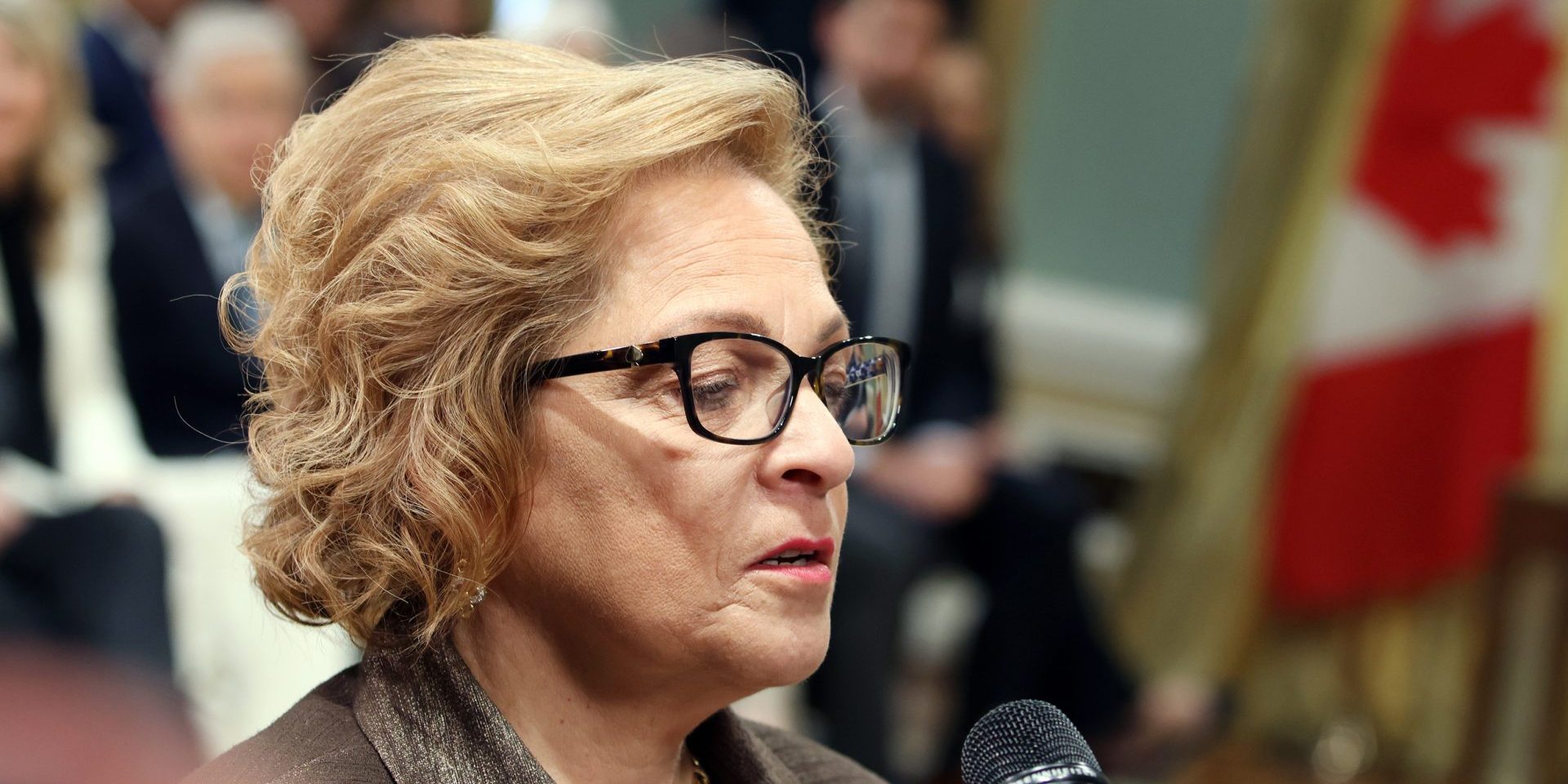IRCC forecasts 30 per cent spending cut by 2028 amid lower immigration targets

Immigration, Refugees, and Citizenship Canada plans to cut spending by 30 per cent by 2027-28 compared to this fiscal year, and drop more than 10 per cent of the department’s jobs.
IRCC’s 2025-26 departmental plan says total planned expenditures are forecast to decrease by $1.6-billion, with cuts across all the department’s functions. It outlines $5.1-billion earmarked this fiscal year, already a drop from $6.58-billion the year prior. The department plans to further reduce its expenses to $3.59-billion by 2027-28.
In the report, released June 17, the department says the cuts are due to lower levels of immigration expected in the upcoming years. In 2025, Canada aims to bring in 395,000 permanent residents, a 21 per cent drop from the year prior; 305,900 new students, a 10 per cent from from 2024; and 367,750 temporary workers, a 16 per cent drop from 2024.
The department breaks down its work into four core responsibilities: visitors, international students and temporary workers; citizenship and passports; and immigrant and refugee selection and integration.
Of these, the fourth category is expected to see the deepest cut, with more than 30 per cent of its spending slashed from $3.9-billion in 2025-26 to $2.7-billion in 2027-28. The Liberals opted against tabling a post-election spring budget, which can set out billions in new departmental programs. This departmental plan was also developed before Finance Minister François-Philippe Champagne (Saint-Maurice—Champlain, Que.) announced a cross government effort to find 15 per cent in savings over the next three years.
The plan says the department’s decrease in spending comes after the government’s decision to reduce the number of immigrants to Canada between now and 2027, along with the end of temporary funding for health care and housing programs for asylum seekers.
Similarly, the expected 11 per cent cut to full-time equivalents is partially due to the decrease in personnel funding that was put in place to stabilize an over-burdened asylum system “and further streamline the processing of asylum claims to allow the system to function more effectively and efficiently in the face of increased volumes, while supporting enhanced program integrity.”
The department’s work related to immigration and refugee selection will also see the deepest cuts to jobs, with nearly 14 per cent of full-time equivalent positions forecast to be cut by 2027-28.
But a non-profit for refugees settling in Canada said the cuts will overburden an already taxed non-profit system that supports newcomers already in Canada.
Gauri Sreenivasan, co-executive director of the Canadian Council for Refugees, said the organization is “extremely concerned” about the impact of the cuts.
“These cuts have immediate, debilitating effects on programs that Canada has committed to publicly,” she said, citing slow and ineffective humanitarian pathways for people fleeing deadly violence in Sudan and Gaza.
“These cuts can only make a bad situation worse.”
What’s more, Canada has an obligation to step up on the global stage, at a time when the United States is “really pulling back in a shocking way from their international obligations,” she said.
“The ability for Canada to respond to obligations, to address those we have committed to resettle and provide fair process for, for protection at the border, is directly impacted by the ability of IRCC to do their work.”
The cuts will have “a significant knock-on effect” to the non-profit sector, she said, with agencies serving critical roles in helping newcomers develop English or French language skills, employment opportunities, and helping children in schools.
“The cuts you have identified are not just to IRCC staff, they then directly affect supports to the incredibly important network of non profits organizations throughout civil society,” Sreenivasan said, adding the sector has established Canada’s “world-class reputation” for refugee resettlement.
While the budget for IRCC is based on future projections for immigration levels, “they’re affecting people who are here now, and who are arriving now,” she said. “That’s the main concern.”
Strong Borders Act could add to IRCC’s workload
Sreenivasan also said the forecasted cuts are happening alongside proposed legislation that could increase the burden on the IRCC. Proposed legislation in Bill C-2, or the Strong Borders Act, would restrict access of asylum seekers to have a hearing at the Immigration Refugee Board (IRB). Some asylum seekers would instead be given a pre-removal risk assessment process administered by the IRCC.
“This alternative being offered does not, in our view, meet at all the requirements of due process and not what Canadians expect, which is that refugees would have an oral hearing before they would be deported to danger,” Sreenivasan said. “Instead, we are offering them a process that is a paper-based assessment done by IRCC.”
The IRB routed a request for comment to the IRCC, which did not immediately respond to a request for comment.
Its departmental plan, though, strikes an optimistic tone, despite the forecasted drop in spending.
“Even though the planned expenditures are decreasing over three years, the department will continue to enhance efficiency and boost productivity,” the plan reads. “The department is modernizing its operations, implementing new policies and infrastructure to improve services and transform the way it does business. This transformation will support IRCC’s ability to successfully achieve departmental results, now and in the future.”
Sreenivasan, though, said the cuts, alongside legislation proposed in Bill C-2, could result in “life and death decisions that will be made by an incredibly overburdened IRCC.”
‘It’s a giant mess,’ says MP Kwan
Earlier this year, IRCC announced its plans to cut 3,300 jobs from its workforce, citing Canada’s reduced immigration targets.

In November 2024, then-immigration minister Marc Miller (Ville-Marie—Le Sud-Ouest—Île-des-Soeurs, Que.) announced drastic cuts to the targeted number of permanent residents admitted to Canada in the next two years, and tighter rules around temporary worker permits.
NDP MP Jenny Kwan (Vancouver East, B.C.) said the Liberals are “plowing ahead” with cuts despite persistent and prolonged delays in processing immigration cases.
“As it stands in the system, the backlog is unbelievable,” said Kwan, the NDP’s immigration critic. “Families are separated, people are being persecuted, and it can’t be processed in an expeditious way. It’s a giant mess.”
Wait times for spousal sponsorship applications outside Quebec have jumped from 12 to 24 months, she said, and applications for parents and grandparents have been frozen for two years.
Refugees who are fleeing persecution, who are “in dire straits” and are privately sponsored by Canadian citizens, can face wait times of over three years.
“This is just a snapshot of some of the problems that exist within our system,” she said. “Cuts to IRCC staff will only further delay the processing, and create greater pain and anguish for the people stuck in the system.”
The Hill Times






 LICENSING
LICENSING PODCAST
PODCAST ALERTS
ALERTS













